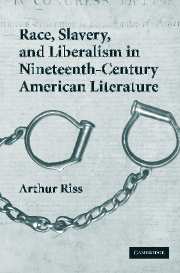Book contents
- Frontmatter
- Contents
- Acknowledgements
- Introduction: the figure a “person” makes: on the aesthetics of liberalism
- 1 Slaves and persons
- 2 Family values and racial essentialism in Uncle Tom's Cabin
- 3 Eva's hair and the sentiments of race
- 4 A is for Anything: US liberalism and the making of The Scarlet Letter
- 5 The art of discrimination: The Marble Faun, “Chiefly About War Matters,” and the aesthetics of anti-black racism
- 6 Freedom, ethics, and the necessity of persons: Frederick Douglass and the scene of resistance
- Notes
- Index
5 - The art of discrimination: The Marble Faun, “Chiefly About War Matters,” and the aesthetics of anti-black racism
Published online by Cambridge University Press: 22 September 2009
- Frontmatter
- Contents
- Acknowledgements
- Introduction: the figure a “person” makes: on the aesthetics of liberalism
- 1 Slaves and persons
- 2 Family values and racial essentialism in Uncle Tom's Cabin
- 3 Eva's hair and the sentiments of race
- 4 A is for Anything: US liberalism and the making of The Scarlet Letter
- 5 The art of discrimination: The Marble Faun, “Chiefly About War Matters,” and the aesthetics of anti-black racism
- 6 Freedom, ethics, and the necessity of persons: Frederick Douglass and the scene of resistance
- Notes
- Index
Summary
In the Postscript he claims to have added “reluctantly” to the second edition of The Marble Faun (1860), Nathaniel Hawthorne addresses his readers' numerous demands “for further elucidation respecting the mysteries of the story.” Although presumably intended to resolve the story's mysteries, this Postscript is, for the most part, Hawthorne's lament over the fact that so many of the book's literal-minded readers want to know whether Donatello really is a Faun. Standing precariously “between the Real and the Fantastic,” this anomalous creature, Hawthorne states, should have “excited [the reader] to a certain pleasurable degree, without impelling him to ask how Cuvier would have classified poor Donatello, or insist on being told, in so many words, whether he had furry ears or no” (463–464). Hawthorne's point is clear. If readers translate Donatello into the realist register of comparative anatomy, all they will discover is that they do not know “how to read a Romance.” Hawthorne urges his readers to let Donatello simply be; let him, that is, remain a purely aesthetic creature, one who incarnates the epistemological instability of the Romance.
Given Hawthorne's insistence that the figure of the man/faun is subject only to the rules of the Romance, it is striking that shortly after writing The Marble Faun, Hawthorne himself resurrects this creature in his only piece of journalism on the Civil War.
- Type
- Chapter
- Information
- Publisher: Cambridge University PressPrint publication year: 2006



